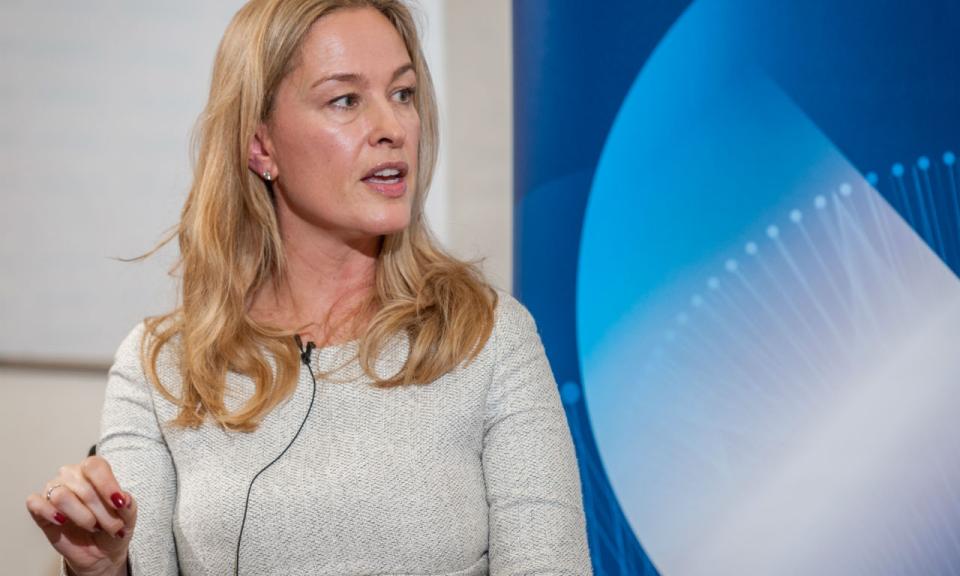
Published
Key topics
The green agenda is already making an impact on policy, business and the way we live, but there’s still a long way to go if we want to secure a sustainable, low-carbon economy.
Rhian-Mari Thomas, the CEO of the new Green Finance Institute, is using her banking experience to champion sustainable finance as part of the transition to a zero-carbon future.
Formerly the Global Head of Green Banking, Founder and Chair of the Green Banking Council at Barclays, Thomas is well-positioned to face this challenge head on.
We sat down with her to discuss the difficulties she faces in her role — and why green finance is essential.
What is your biggest challenge when it comes to championing sustainable finance?
The financial market is split into different groups when it comes to attitudes towards green finance, and the challenge I face is catering to each of them.
You have some players who are laggards, who do not see either the commercial opportunity or the considerable risk associated with climate change. You also have those who are still questioning the situation, rather than taking action.
The average player however is done with questioning and understands they need to act — they have signed up to the Task Force on Climate-Related Financial Disclosures, they are thinking about integrating sustainability into their business model, but they’re stuck on how to do it. After all, this is an entirely new area — none of us has been through a net-zero carbon transition before.
Then you have the final group, the few who are at the absolute vanguard.
Have you seen attitudes change towards green finance?
The change is extraordinary. Even 12 months ago people were still very skeptical and using up far too much energy challenging the science. Now, you’re far more likely to meet people who want to make practical changes.
A few weeks ago, I was asked to give a speech at the UK Finance Annual Mortgage Conference, and I used that platform to talk about the considerable and imminent risks that will impact the real estate market. I ended up publishing my speech because so many people asked for a copy. I think now there’s a real willingness to learn more and to understand how to deal with the situation.
What difficulties does the financial sector face as it shifts to a sustainable model?
We have never done this before and that makes it very difficult, especially in a market as heavily regulated as banking. You can’t extrapolate from a past trend because there is no precedent.
From a finance perspective there is the risk of the inevitable policy response. The electorate are increasingly calling for it as more people recognise that we are in a state of emergency. This transition could be very disorderly and that’s the concern.
An additional problem is climate change is not the most prominent issue on the agenda for most company boards because it may not be perceived to be as urgent as some other priorities.
How is the UK performing in terms of a green agenda compared to other countries?
In some ways, we are leading the way. We were the first country to come up with a green investment bank, and now around another 20 countries have launched their own. We can point to fantastic achievements, like 40 per cent of global offshore wind capacity sitting around the British coastline – an amazing example of public and private sector collaboration. Again, this is expertise and knowledge we are exporting.
Our green finance taskforce came up with 30 recommendations, which we’re working through with the government — this is being emulated in other places.
Purely in finance terms, we can hold our heads up high. The City of London is home to a lot of innovation, with a number of other financial centres working very hard to catch up.
How much of a risk does Brexit pose to the green finance agenda?
This issue transcends others and I think it is an area where we can demonstrate global leadership and work closely with the EU regardless of what happens around Brexit. We’re seeing the European Commission take a real lead on sustainability, for example by defining the terms of a green economy and creating a sustainable action plan.
When the UK came up with its green finance strategy, it committed to matching the ambition of the EU.
Are you optimistic that creating sustainable financial markets is possible?
Yes, I am. My optimism derives from the advances in technology and the increasing understanding of the economic benefits of the transition to a cleaner, greener society.
Green finance is all about embedding science into financial decision-making. When you make any kind of financial decision you look at market risk, credit risk and operational risk. This is just an additional consideration and one that will help drive capital towards the right solution.
I think if we had all the time in the world, the market itself could potentially solve the problem along with technology — the issue is the urgency. The fact that carbon is not priced appropriately is a market failure. That’s where we need better policy and regulation.
What risks do the markets face if they do not become more sustainable?
Climate change presents the greatest systemic risk to the stability of the financial markets. Transition, physical and litigation risks are all potential concerns – the idea that we can continue to extract all identified fossil fuels out of the ground, which underpins the valuation of entire industries, contradicts what the climate scientists tell us we need to do in order to avoid climate breakdown and so presents a system-wide risk that we need to mitigate.

